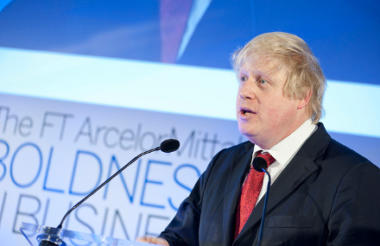Charity sector bodies have responded to Boris Johnson’s announcement today that he will resign as Conservative party leader and make way for a new prime minister in the coming months.
His announcement came after more than 50 government ministers resigned their posts over the past two days, including charity tax minister Helen Whately but not civil society minister Nigel Huddleston.
Johnson had survived a no-confidence vote last month in which 148 Conservative MPs had voted to oust him as their leader but after this week’s mass resignations he agreed to step down.
A Conservative party leadership election will now take place, with Tory members deciding on Johnson's replacement.
Some charity sector bodies welcomed Johnson's resignation while others urged his successor to support voluntary organisations.
NCVO: ‘Next leader should champion voluntary sector’
Voluntary sector umbrella body NCVO urged Conservative party leadership candidates to champion the role of charities in responding to social, humanitarian, economic and environmental crises.
Chief executive Sarah Vibert said: “The country is facing huge challenges. Communities are struggling. We urgently need a government that can act on these issues.
“Charities and volunteers are at the heart of our communities. They’re doing vital work in difficult times.
“As we feel the effects of multiple crises, charities face increasing demand for services at a time when they too have fewer resources. We need a government which recognises, supports, and champions the role of the voluntary sector as part of the solution to the converging social, humanitarian, economic and environmental crises.
“We would urge leadership candidates to listen to charities and volunteers about what they need to support communities.”
ACEVO: ‘An end to the disruption’
The Association of Chief Executives of Voluntary Organisations (ACEVO) welcomed Johnson’s resignation in light of the resignations leaving an “unsustainable level of unfilled ministerial roles”.
Chief executive Jane Ide said: “There is no question that the succession of ministerial resignations over the last 48 hours and the unsustainable level of unfilled ministerial roles has left many of our campaigning and advocacy colleagues deeply worried that important and pressing matters affecting the most disadvantaged in our communities will, once again, be left on the back burner while political machinations take priority.
“On that basis we welcome the decision of Boris Johnson to step down from his role as prime minister, bringing to an end the disruption of recent days and weeks, and allowing for a transition of power to a new leader.
“We hope that while this process is undertaken our government will find itself able to refocus once more on urgent key policy areas such as the current and continuing cost of living crisis, the levelling up agenda and support for communities, the need for a real solution to the crisis in social care and the challenges in delivering effective health care and tackling deep-rooted health inequalities.”
CFG: ‘What now for levelling up agenda?’
Caron Bradshaw, chief executive of the Charity Finance Group, said: “As the chaos unfolds in Westminster, we are left wondering where the collapse of Johnson’s government leaves the country. What will this mean for the government’s flagship policy commitments, such as the levelling up agenda?
“We have recently made strong progress on the key issues that affect the sector, particularly around banking and governance. But there is more to be done. We will not lose sight of that progress and will continue to build upon it.
“Despite the ongoing uncertainty, our commitment to working productively with government ministers – whoever they may be – and civil servants remains firm. We look forward to welcoming those new ministers and sharing with them our work and vision.”
Bond: ‘Next PM should restore aid budget’
Bond, the umbrella organisation for aid charities, criticised Johnson’s decision to reduce the government’s aid contributions from 0.7% to 0.5% of gross national income and his decision to merge the Foreign Office and the Department for International Development (DfID).
Chief executive Stephanie Draper said: “The commitment Boris Johnson showed in response to the war in Ukraine and getting girls into education was welcome, however under his leadership we also saw the poorly considered merger between the Foreign Office and DfID, as well as the devastating cuts to the UK aid budget, removing a lifeline to billions of people dealing with conflict, poverty and climate change.
“We hope whoever replaces him takes urgent steps to get us back to 0.7% of GNI going to UK aid, so we can legitimately reclaim our role as a global player when it comes to delivering on our promises to the world's most marginalised people.”
Charity tax minister resigns
Helen Whately, who had responsibility for charity tax policy, resigned as exchequer secretary to the Treasury this morning.
Whately, who had been in post since September last year, said she was quitting “with sincere regret” but said in her resignation letter that “there are only so many times you can apologise and move on”.
The Charity Tax Group declined to comment on her departure.












